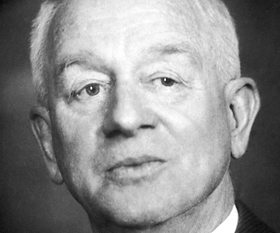At age 32, Peyton Rous discovers that cancer might be transmissible, like a virus. His inability to reproduce this theory in other experiments results in no one believing him and him abandoning his research. Decades later however, he finally finds a way to get his theory proven and wins the Nobel Prize. This is a summary of how he did it…
1879 – Peyton is born in Baltimore, Maryland, U.S.A.
University – In medical school, while dissecting a tuberculous bone, he accidentally scratches his finger on it. The scratch causes an infection that results in his axillary glands being removed. He misses one year of medical school because of this. While recovering, he goes to Texas and his uncle gets him a job on a ranch. When he returns to his studies, he decides he is unfit to be a practicing physician. He obtains a Bachelor’s degree from John Hopkins University and continues his studies.
Age 26 – He receives a Master’s degree from John Hopkins Medical School. Becomes an instructor in pathology at the University of Michigan for insufficient salary.
Age 28 – His boss tells him to learn German and study physical anatomy at a hospital in Dresden, Germany, for the same salary. He does.
Age 36 – He marries Marion deKay. They will go on to have 3 daughters.
Age 30 – Peyton returns to the U.S. and gets a job at the Rockefeller Institute for Medical Research. A few months later, he becomes responsible for the cancer research laboratory.
Age 32 – Peyton turns his attention to pathological problems, including cancer. He begins researching tumours, discovering that extracting material from a cancer tumour in a hen and injecting it into a healthy chicken would give the healthy chicken cancer, proving that the cancer tumour contains a virus. Nobody believes him because the experiments cannot be recreated in mammals and he abandons his research.
Age 55 – A friend and colleague asks Peyton to study a virus that is responsible for giant warts in wild rabbits. Peyton agrees and soon proves the warts to be benign tumours that often turn cancerous, reviving his virus-cancer theory.
Later – Scientists accept that viruses can be one cause of cancer. Peyton would also research blood transfusions and produce work that would lead to the launch of the world’s first blood bank in Belgium.
Age 79 – He wins the Albert Lasker Award for Basic Medical Research.
Age 86 – He wins the National Medal of Science.
Age 87 – He wins the Nobel Prize in Physiology or Medicine for his research in cancer causing viruses.
Age 91 – Peyton dies.
More life summaries available here.
Photographs: Public Domain. Compiler: Sy
Sponsor or support the Life Summary series here.
If you found this article useful:


Say something: